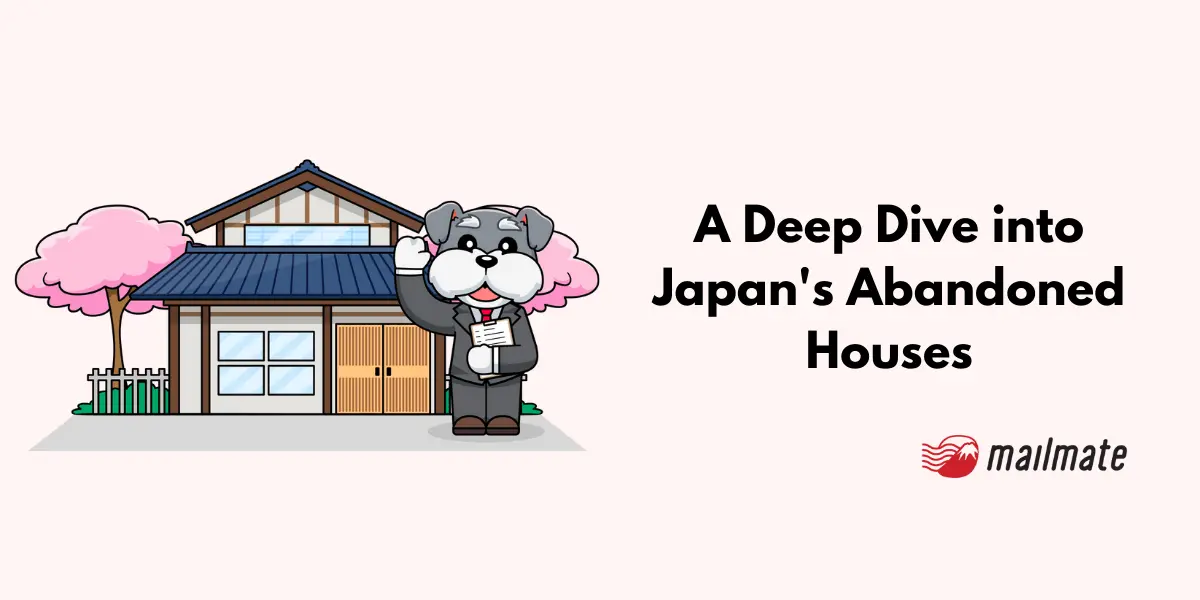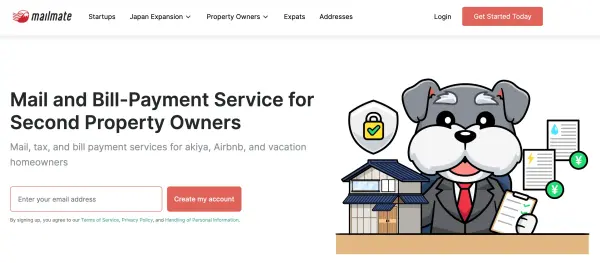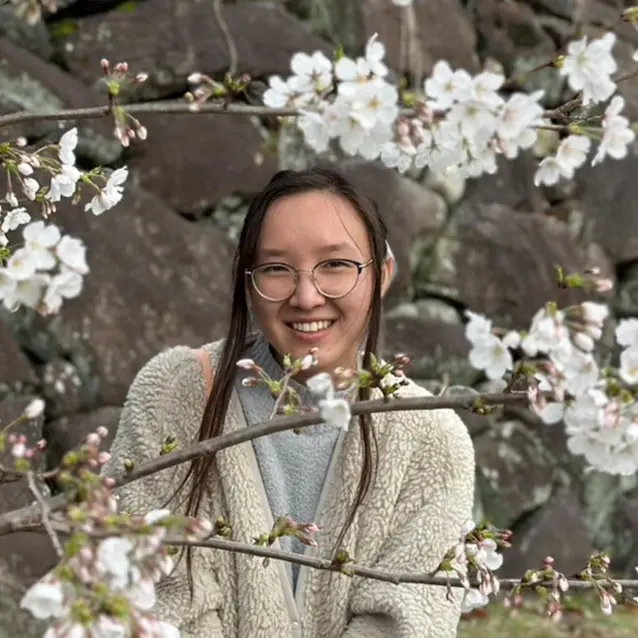A Deep Dive into Japan's Abandoned Houses

Across Japan, more than 8.5 million homes sit vacant and abandoned, many in rural areas or shrinking towns. Known as akiya (空き家), these properties now make up over 13% of the country’s total housing stock—a number that continues to rise due to population decline, urban migration, and an aging society.
Today, we’ll take a look at the phenomenon of Japan’s abandoned houses and why they are occurring.
Why does Japan have abandoned properties?

Japan's abandoned house issue, aka akiya, arises from multiple factors that build on each other.
1. An aging population and low birth rate
Japan has one of the world’s oldest populations.
According to the BBC, one in 10 people in Japan is now 80 or older. At the same time, Japan’s birth rate remains low, leading to a shrinking population. The falling number of children is contributing to an increasing surplus of vacant homes, as the population declines while properties remain unused due to complex family ownership issues.
As older homeowners pass away and fewer young people remain in rural areas, many houses—especially in the countryside—are left abandoned.
2. Inheritance issues
Even unoccupied homes incur annual property taxes and maintaining a property in Japan can be expensive. Inheritance disputes can further complicate the process, adding legal and financial challenges, particularly relating to ownership and transfer of property rights.
For many families, especially those younger generations who inherit properties they don’t plan to use, the ongoing costs aren’t worth it. As a result, they may abandon the homes rather than invest in upkeep or taxes.
3. Property taxes
Inheriting any property in Japan will result in paying the related property taxes, which is an additional financial strain.
Many want to avoid the significant costs and responsibilities that need to be paid, leading to abandoned homes.
4. Demolition costs
Demolishing a house in Japan is not cheap. Tearing down a modest 100-square-meter home can cost between $10,000 and $30,000, depending on location and materials. What seems like a good deal can quickly turn into an undesirable investment due to these high demolition costs.
This cost discourages owners from clearing the land, especially when there’s little chance of resale or redevelopment.
5. Preference for new homes
There is a strong market bias toward newly built homes in Japan. Many affordable akiya properties come with hidden costs and responsibilities.
In 2019, the Ministry of Land, Infrastructure, Transport and Tourism reported that while 980,000 new homes were constructed, only 170,000 existing homes were sold.
What are the solutions for abandoned houses?

Both national and local governments in Japan are working to address the abandoned house issue, offering various grants and subsidies, which we’ll discuss below.
1. Relocation and housing support
Many municipalities and regional organizations in Japan provide financial assistance for relocation to encourage people to move into vacant homes in Japan’s countryside. However, many of these homes are situated in isolated areas that lack convenient access to essential services such as public transport, healthcare, and grocery stores. This can include help with moving costs, as well as temporary living stipends during the transition period.
Some programs also offer employment support or job training to help new residents integrate into the community and find local work opportunities.
2. Grants and subsidies
Local governments often offer grants and subsidies to assist with the renovation of akiya, including repairs, utility installation, and structural improvements. These subsidies can significantly reduce the upfront cost of restoring an old home, though eligibility and coverage vary by region. Additionally, various services are available to support the home-buying process, such as property management, utility setup, and translating property listings into other languages.
In some cases, additional short-term financial support is available to help residents settle in during the first few months.
3. Akiya banks
Akiya banks (空き家バンク) are online platforms that list available vacant homes across Japan. These databases help connect prospective buyers or renters with property owners by showing which properties are listed on akiya banks and commercial real estate sites.
Akiya banks are operated at the municipal or prefectural level, and listings vary widely, from traditional countryside homes to small urban dwellings. Some even include homes offered for symbolic prices or free, provided certain conditions are met.
The 3 main types of abandoned houses in Japan
Feature |
Kominka |
Machiya |
General Akiya |
Location |
Rural countryside |
Historic city centers |
Anywhere (urban, suburban, rural) |
Age |
80–150+ years |
70–120+ years |
Varies widely |
Style |
Traditional wooden farmhouse |
Narrow merchant townhouse |
Modern or traditional |
Renovation Difficulty |
High |
High |
Varies (low–high) |
Price |
Low purchase, high renovation |
Higher purchase & renovation |
Wide price range |
Best For |
Nature-seekers, retreat homes |
Culture lovers, shops/cafés |
First-time buyers, investors |
1. Kominka (古民家) houses: traditional countryside homes

Also known as minka, kominka are traditional wooden homes typically found in rural areas of Japan. Many of these properties come with farmland, which brings additional responsibilities such as obtaining permission from the Agricultural Committee and managing the agricultural land. Most were built over 100 years ago using natural materials such as wood, clay, and thatch. They often feature tatami rooms, engawa (verandas), and steep thatched or tiled roofs.
Kominka are usually stand-alone houses with larger floor plans and land plots, making them attractive for buyers seeking space, privacy, and proximity to nature. However, they often require major renovations to meet modern living standards, especially for plumbing, heating, and insulation.
2. Machiya (町家) houses: traditional townhouses

Machiya are traditional urban townhouses, typically found in historic districts of cities like Kyoto, Kanazawa, and Takayama. Unlike kominka, machiya are built in narrow, deep plots (known as “eel’s beds”) and often combine living space with storefronts, reflecting their origin as merchant homes.
These houses offer a more central location and cultural value, but they also come with strict preservation rules in some areas. Renovation costs can be high due to the need to preserve architectural authenticity and meet safety codes.
3. Akiya (空き家) houses: general vacant houses

The term akiya simply means “vacant house” and covers a wide range of properties, from aging suburban homes to severely deteriorated rural buildings. For example, complex issues surrounding property ownership can arise, particularly in cases of unclear family ownership of houses. Akiya can be:
Traditional or modern in style
In towns, suburbs, or countryside
Structurally sound or in need of demolition
While some akiya are sold at very low prices—and occasionally offered for free—they may have structural problems that require repairs.
Keep in mind that affordability often comes with trade-offs in location, condition, and infrastructure. To learn more about free houses in Japan, check out this article.
How can I buy an akiya in Japan?
Here are the general steps to buy an akiya house in Japan.

1. Inquiry
Use an akiya bank or other listing site about the particular akiya you are interested in. This usually involves filling out a simple application where you will write your name, email, phone number, and estimation to move in.
Then, the respective real estate agents will connect with you, providing specialized knowledge and insights to help navigate the process of buying an akiya house.
2. Property viewing
After connecting with the real estate agent, they’ll see if you have other properties you have in mind. If they are close to each other, the real estate agent will arrange transportation for you to see the properties. Building a good relationship with the person showing you the properties can greatly enhance your experience and understanding.
It may take the whole day to view the properties, and it’s best to have a Japanese speaker with you.
If you live overseas, a video call is possible for you to view the property. Again, it’s best to have a Japanese speaker with you on your behalf for better communication.
3. Purchase application
After property viewing the properties, now it’s time to apply. Authorities often struggle to decide which damaged properties to clean up due to unclear ownership, complicating recovery and development in areas with a high concentration of akiya. You may have to submit a “Letter of Intent (LOI),” which is a nonbinding letter to express your interest in purchasing. It lays out the terms and conditions, such as expected property price and payment procedure.
Usually, the real estate agent will help with this letter and submit it for you.
Please note that the seller can negotiate to reach an agreement and has the right to decline your application.
4. Contract signing
Once an agreement is reached, the agent will prepare all the documents for you. According to statistical data provided by Japan's Ministry of Internal Affairs and Communications, the growing issue of vacant homes amidst the country's declining population is a significant concern. It will be in Japanese for you to review with any additional fees. The agent will also explain the terms and conditions of the contract.
You may have to pay an initial deposit as well as the agent’s commission fee.
If you live overseas, you might need someone to sign the contract on your behalf, like a proxy (代理人, dairinin).
5. Closing
2-3 weeks after the contract signing, you will pay the remaining amount. Depending on the contract, you will pay in full or monthly, like a mortgage. It is important to understand that various fees and expenses need to be paid during this process, which can add up significantly.
After confirming the payment method and reviewing the documents, the property is transferred to you with the keys.
You should be present with your proxy at the final closing. Then you will need to register the title transfer at the local Legal Affairs Bureau after the meeting.
What are the real costs & risks of buying an akiya?
While Japan’s abandoned houses can look unbelievably affordable, the true cost of ownership can be much higher than the listing price suggests.
Below are the most common hidden costs, financial risks, and deal-breaking surprises that many buyers discover only after taking on an akiya.
1. Renovation costs are often higher than the purchase price
Many akiya need full structural renovation, not cosmetic repairs. Typical renovation ranges across Japan:
Type of Work |
Typical Cost Range (JPY) |
Basic repairs (cleaning, minor fixes) |
¥300,000–¥1,000,000 |
Standard renovation (kitchen, bath, floors) |
¥2,000,000–¥6,000,000 |
Full structural renovation |
¥6,000,000–¥15,000,000+ |
Replacing roof, plumbing, or electrical |
¥1,000,000–¥5,000,000+ |
2. Earthquake resistance can be a major liability
Houses built before 1981 often do not meet Japan’s modern seismic standards. Many akiya fall into this category and may require:
Structural reinforcement
Foundation stabilization
Re-roofing or beam replacement
Even if a home “looks fine,” hidden structural damage can double or triple renovation costs.
3. Asbestos, termites, mold, and water damage
Japan’s humid climate means older homes frequently have:
Termite damage
Black mold in unventilated areas
Asbestos in older roofing and insulation
Rotting beams from water intrusion
These problems are common in rural and abandoned homes, and inspections are often limited unless you pay extra. A cheap akiya can quickly become a ¥10M+ renovation project.
4. Farmland restrictions can block your purchase
Many kominka, or rural akiya, include farmland parcels—even tiny ones. Under Japan’s Farmland Act (農地法, nouchi ho):
Foreigners cannot freely own agricultural land
You must obtain approval from the local Agricultural Committee
In many regions, approval is rarely granted unless you commit to farming
Some buyers unknowingly purchase a house they cannot legally transfer into their name until farmland issues are resolved or subdivided.
5. Unclear ownership & multi-heir problems
A major risk that affects thousands of akiya: Japan often has vacant houses with 5, 10, or even 20+ heirs.
Problems include:
Some heirs live abroad or cannot be located
Some refuse to sign the transfer
Title cannot be transferred until all heirs agree
Legal resolution can take years
This is why some abandoned properties are listed cheaply or appear “stuck” on akiya banks.
6. Infrastructure may be outdated or nonexistent
Many abandoned houses still use:
Septic systems that do not meet modern standards
Old water lines that fail pressure tests
No insulation or heating
Single-pane windows
Upgrading these often costs more than renovating the interior.
7. Demolition fees can surpass the land value
If an akiya is beyond repair, demolition adds another ¥1,000,000–¥3,500,000+ depending on:
Location
Asbestos presence
Access for demolition vehicles
Material disposal fees
Some “free houses” are effectively giveaways because demolition fees exceed the value of the land.
8. Ongoing costs that many foreign buyers don’t expect
Even if you rarely visit Japan, you must still pay:
Fixed asset tax
City planning tax
Mandatory community fees in some villages
Insurance (homeowner + earthquake)
Utility base fees even when not in use
If you live overseas, you must also appoint a tax representative—a legal requirement that many new buyers learn about only after purchase.
9. Rural access challenges
Many akiya are located in:
Mountain villages with heavy snow
Regions with no trains or buses
Areas with limited hospitals, shops, or schools
Low prices often reflect severe depopulation and lack of services.
10. “¥0 houses” still require large upfront investment
Free or symbolic-price akiya often come with:
Structural instability
Farmland complications
Community approval requirements
Mandatory demolition
Unpaid back taxes or association fees
Non-negotiable renovation obligations
The total cost can easily exceed that of a normal used home in a populated area.
How to handle Japanese property taxes if one lives abroad
When buying and owning a Japanese property, you’ll be required to pay a few key property-related taxes:
Real estate acquisition tax (不動産取得税, fudōsan shutoku zei)
Fixed asset tax (固定資産税, kotei shisan zei)
City planning tax (都市計画税, toshi keikaku zei)
These physical bills/tax premium notifications will be sent to the property in Japan that you have purchased.
If you do not plan to reside in Japan, then you must appoint a tax representative / domestic contact to handle your property taxes on your behalf.
Many foreign investors and property owners appoint MailMate as their tax representative, as MailMate provides the following services and more:
Receive and pay your property tax bills without a Japanese bank account.
Register MailMate as your Domestic Point of Contact at the time of your property purchase.
Receive your Japanese Mail digitally with English summaries & an interactive Mail Concierge.
Local point of contact and bill pay for your condo or building association.
Local point of contact for utility set-up and ongoing bill-pay.
Get fiber optic internet set-up at your property (inclusive of monthly internet fees)
When you make MailMate your tax representative, they’ll handle all that paperwork. So all you need to do is to click “Pay,” and just like that, your taxes are paid.
Frequently asked questions
Are there abandoned houses for rent in Japan?
Yes, renting abandoned houses in Japan is possible. Various services are available to support you in renting akiya properties, including assistance with property management and utility setup. While there are many akiya houses for sale, you may need to search through akiya banks to find akiya properties available for rent or tell the real estate agent you are looking to rent instead of purchasing.
Can a foreigner buy akiya?
Yes. Foreigners can legally buy and own land, houses, and akiya in Japan without needing citizenship, residency, or a special visa. The only major restriction applies to agricultural land, which requires approval under the Farmland Act. For residential properties, foreigners have the same ownership rights as Japanese buyers.
How much does it really cost to renovate an akiya?
Renovation costs vary significantly, but most akiya require at least ¥2–6 million for basic modernization. Full structural renovations—such as updating plumbing, electrical systems, and earthquake resistance—can easily exceed ¥10 million. Older kominka or machiya often require the highest budget due to preservation needs and traditional construction methods.
Why are akiya houses so cheap in Japan?
Akiya houses are cheap because many require major repairs, are located in depopulated rural areas, or come with costly issues such as structural damage, outdated utilities, or expensive demolition requirements. In some cases, unclear multi-heir ownership or low resale demand also pushes prices down. As a result, the real cost of making an akiya livable is often far higher than the listing price.
In closing
While Japan's abandoned houses present challenges, they also offer unique opportunities for those seeking affordable property in one of the world's most fascinating countries.
For foreigners, purchasing an akiya can be both rewarding and daunting. The language barrier, understanding local property laws, managing renovations remotely, and handling ongoing tax obligations require specialized knowledge and in-country support.
This is where MailMate steps in.

Whether you are an akiya owner, owner of multiple properties, or vacation home owner, MailMate’s Akiya & Vacation Home Package will help anyone with all their property management needs.
The bilingual service includes the following features:
Tax representative for annual real estate tax payments
Domestic point of contact for authorities (required by law)
Bill pay support for property tax payments
Tax notifications with English summaries
A virtual mailbox to receive the mail that arrives at your Japanese property
Manage important property documents and notifications in one place
Home owner's insurance quote and contract liaison
Other services MailMate offers include utility and Internet setup of your Japanese property.
Founded in 2019, MailMate has simplified property ownership for foreigners living abroad and is an increasingly popular option recommended by users as well as well-known industry figures.
Spending too long figuring out your Japanese mail?
Virtual mail + translation services start at 3800 per month. 30-day money-back guarantee.

